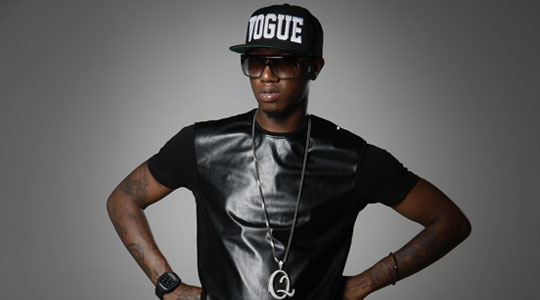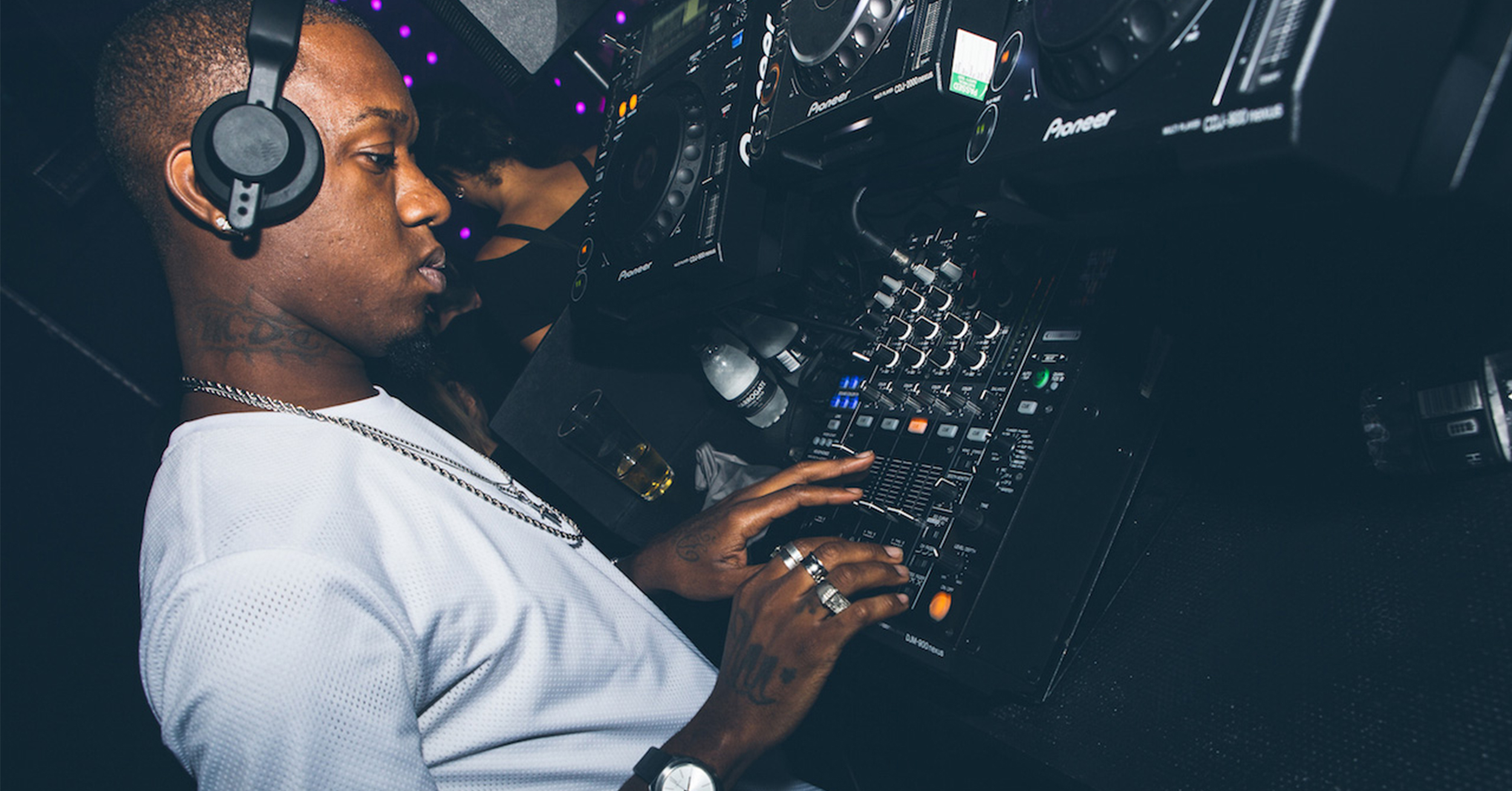The name MikeQ has become as synonymous with the underground club scene carved out by Fade to Mind and Night Slugs as it has with underground ballroom and vogue culture. As the head of his own label, Qween Beat, MikeQ has been a staple of the queer underground for over a decade, and he’s still going strong, with a fresh compilation out on his label late last year and a film score under his belt for the documentary Kiki (available now on iTunes), a spiritual sequel of sorts to the ubiquitous documentary Paris is Burning.
He’ll be joining Kingdom and Asmara (of Nguzunguzu fame) Good Life tonight as the Tears in the Club tour pays a visit to Shake. In advance of the show, we asked MikeQ a few questions about how he got involved with these scenes, his influences, and how anyone can engage respectfully with the queer underground.
Interview by Alyce Currier (aka Lychee)
When did you first become interested in creating (rather than just consuming) music?
MikeQ: After first going out to an actual party and being exposed to that, and Ballroom as well. This was in 2003, and by 2004 I was creating.
How has your New Jersey origin influenced your musical output?
MikeQ: Growing up in NJ, even before going out I got exposed to a lot of dance music: classic house tracks, Baltimore club early on, then Jersey Club as that came around so I feel like just because of that “the beat” was within, lol.
How has collaborating with Fade to Mind and Night Slugs influenced you?
MikeQ: It’s influenced me to be a boss, like I already have always been a leader in my life and coming to be attached to these two labels and being able to talk deeply with Kingdom and Bok Bok about what further to do has a big influence on me. Also the crews of amazing artists that come under these labels/families is inspiring itself.
You’ve mentioned elsewhere that Paris is Burning was a pivotal film for you. Are there other cultural touch points outside of music that have been equally important?
MikeQ: Yes, besides Paris is Burning, actually being in and a part of the ballroom community is more important than anything. I live some of the same struggles as many of the participants in Ballroom. No, we are all not just sitting there flat out on the struggle, but we go through our shit, things that directly affect us as a community.
How much responsibility do you think artists have to know the history and context around the music they’re DJing or sampling?
MikeQ: Enough if not all, but is there ever enough? I still learn every day about what I’ve been a part of for some 14 years now, and it’s like a kick in the ass when people just jump on things others have put a life into.
How do you think a niche culture like ballroom can relate with mainstream culture? How do you distinguish between appreciation and appropriation?
MikeQ: I mean if you ask me, you see Ballroom all in mainstream. Your hairdressers, stylists, choreographers, all the way to mega stars are a part of Ballroom. More and more, you are starting to see it, but we’ve been there. That’s how it relates. Appreciators not only engulf themselves, but try to give back in a way. Appropriators take and give nothing. Know nothing.
Appreciators not only engulf themselves, but try to give back in a way. Appropriators take and give nothing. Know nothing.
What are the most important or salient aspects of queer spaces that make them queer? Can queer spaces only be underground, or are traditional venues able to replicate this feeling?
MikeQ: The aspects of just them being occupied by us, we can make any space our own, safe of course. I’ve seen balls happen anywhere from clubs, to the street, to a pier, to a parking lot of a building that used to hold balls. Once we are there. It’s ours.

As ballroom and queer culture in general become increasingly well-known, do you have any thoughts about how white, straight, etc. attendees of events centered around QPOC communities can participate in these spaces respectfully?
MikeQ: Knowing. Many newcomers to Ballroom, not from our regular demographic, are a part of what we do, and they do it fine. They have attached themselves, learned about the culture, the people. Who, what, why… they participate, they are around us, so it’s possible. But don’t just jump in head first, next thing you are throwing what you think is a ball somewhere in a few months.
Is there anything coming up for you event or release-wise that you’d like to shout out?
MikeQ: Well I’d definitely like to shout out the release of the Kiki movie… I won’t go into what that is because when you go to a theater this week in NYC or get it on iTunes right now, you’ll know what I’m talking about. Besides that, catch me out this weekend from Boston to NYC.
See MikeQ alongside Kingdom, Asmara, and Fens LIVE at Good Life on Friday, March 3rd. More info here!


